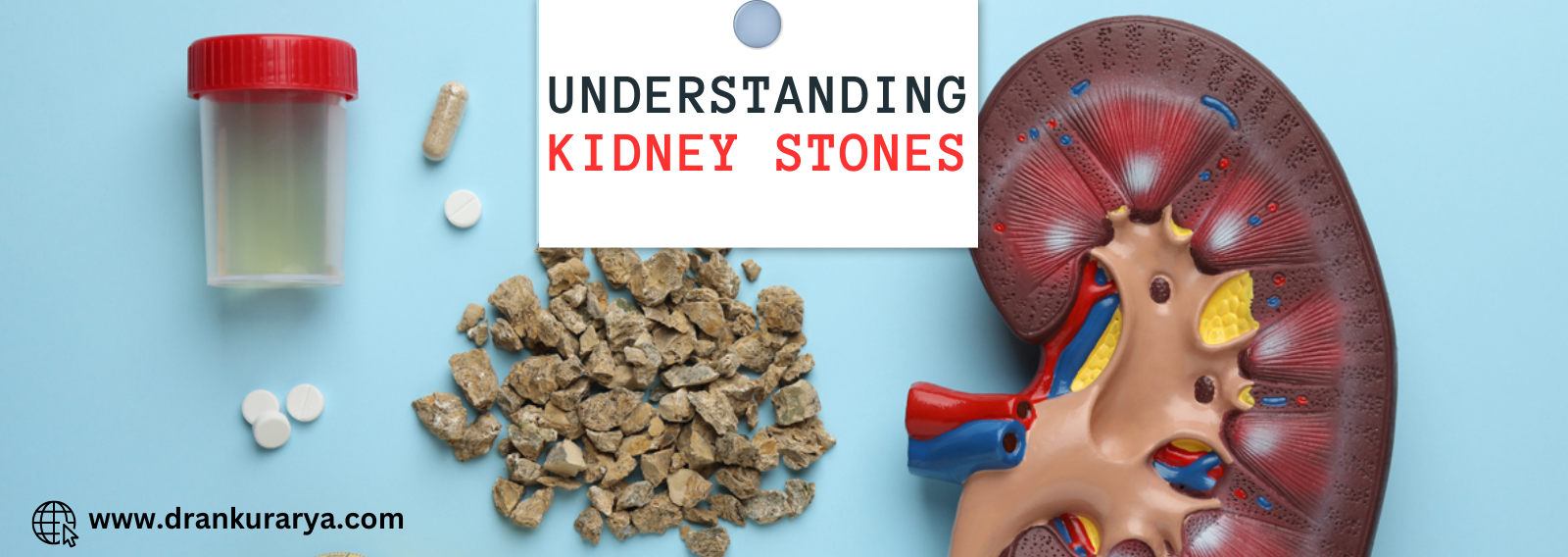Office Address
142, Avtar Enclave, Paschim Vihar, Delhi, 110063
142, Avtar Enclave, Paschim Vihar, Delhi, 110063

Kidney stones are small, hard deposits that form in the kidneys. They are made up of minerals and salts and can cause significant pain and discomfort when they move through the urinary tract. Many people wonder if kidney stones can dissolve without medical intervention. The answer depends on several factors, including the type, size, and location of the stones.
For those seeking medical advice or treatment options related to kidney stones in the Paschim Vihar area, consulting the best urologist is essential. A skilled urologist can provide expert guidance on managing kidney stones effectively.
Types of Kidney Stones
Calcium Stones: The most common type, comprising calcium oxalate or calcium phosphate.
Uric Acid Stones: Form when the urine is too acidic.
Struvite Stones: Associated with urinary tract infections.
Cystine Stones: Rare and caused by a genetic disorder that affects cystine levels in urine.
Some kidney stones can dissolve or pass without medical intervention, but this depends largely on their type and size.
Small Stones: Stones smaller than 4 mm often pass on their own. Drinking plenty of water can help flush them out of the urinary system.
Uric Acid Stones: These can sometimes be dissolved with medications that alkalinize the urine. A diet low in purines (found in red meat, shellfish, and alcohol) can also help prevent their formation and promote dissolution.
Calcium Stones: These do not dissolve but may pass if small enough. Dietary changes and medications can help prevent their growth.
Struvite and Cystine Stones: Generally require medical intervention. Struvite stones can grow quickly and cause infections, while cystine stones are challenging to dissolve due to their genetic basis.
Hydration: Drinking plenty of water (2-3 litres per day) can help flush out small stones.
Citrus Juices: Lemon or orange juice can increase citrate levels in the urine, which can help prevent stone formation.
Dietary Changes: Reducing salt, animal protein, and oxalate-rich foods (like spinach and nuts) can help.
Herbal Remedies: Some herbs, such as chanca piedra (stone breaker), are believed to help break down stones, but their effectiveness is not well-supported by scientific evidence.
If a stone is too large to pass, causes severe pain, or leads to complications like infection or impaired kidney function, medical intervention is necessary. Treatments include:
Medications: Pain relievers, alpha-blockers to relax ureters, or potassium citrate to dissolve uric acid stones.
Extracorporeal Shock Wave Lithotripsy (ESWL): Uses sound waves to break stones into smaller pieces.
Ureteroscopy: A small scope is used to remove or break up stones.
Percutaneous Nephrolithotomy: Surgical removal of very large stones.
Preventing kidney stones involves lifestyle and dietary changes. These include:
Stay Hydrated: Drink enough fluids to keep urine light yellow.
Dietary Adjustments: Limit salt, reduce oxalate-rich foods, and maintain a balanced intake of calcium.
Monitor Protein Intake: Reduce consumption of animal protein to decrease the risk of uric acid and calcium stones.
Regular Check-ups: If you have a history of kidney stones, regular medical check-ups can help monitor and manage your condition.
While some kidney stones can dissolve or pass without medical intervention, others require treatment. Understanding the type and size of the stone, staying hydrated, and making dietary changes can aid in managing and preventing kidney stones. Always consult a healthcare professional if you experience severe pain, difficulty urinating, or other concerning symptoms.
For the best urologist in Paschim Vihar, seek guidance from qualified healthcare providers who specialise in urology. They can provide personalised advice and treatment options tailored to your specific needs.
FAQs
Q.Can all kidney stones dissolve on their own?
No, not all kidney stones can dissolve on their own. Small stones and uric acid stones have a better chance of passing or dissolving naturally compared to larger or other types of stones.
Q.How much water should I drink to help pass a kidney stone?
It's generally recommended to drink at least 2-3 litres (8-12 cups) of water a day to help pass a kidney stone. This amount can help keep your urine diluted, which may aid in passing the stone.
Q.Are there any foods that can help dissolve kidney stones?
While no specific foods can dissolve kidney stones, a diet low in salt, animal protein, and oxalate-rich foods can help prevent stone formation. Foods that alkalize the urine, like citrus fruits, may help with uric acid stones.
Q.Can kidney stones recur?
Yes, once you have had kidney stones, you are at a higher risk of developing them again. Preventive measures, such as staying hydrated and dietary modifications, can help reduce this risk.
Q.What are the signs that a kidney stone is passing?
Signs that a kidney stone is passing include sharp, cramping pain in the back and side, blood in the urine, nausea, and frequent urination. The pain may move as the stone moves through the urinary tract.